
Where Can I RV During the Pandemic?: Resources & Insights
Where Can I RV During the Pandemic?: Resources & Insights
GoLifers around the country check-in on what RVing looks like for them right now.
By: GoLife Staff
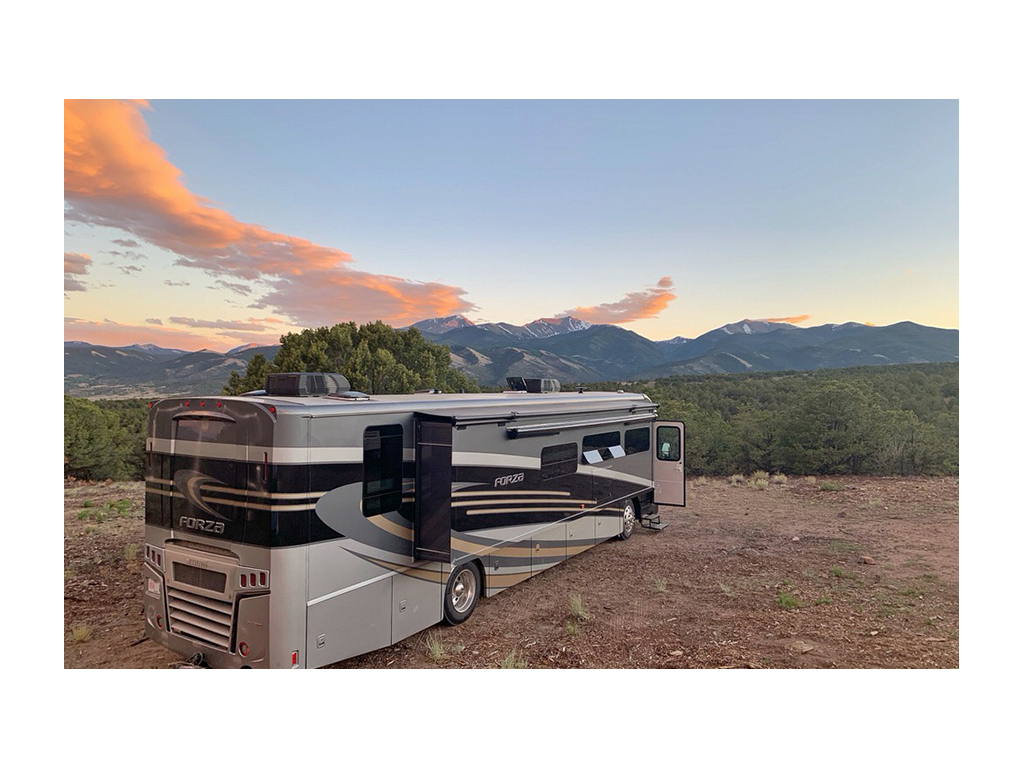
Whether you are an RV lifer who is ready to change locations or a weekend warrior who wants to finally pull their RV out of storage, planning an RV trip during the COVID-19 pandemic takes a lot of additional considerations regarding safety and abiding by various local regulations.
As some of our full-time RVers have shared in the past few months, living in an RV during a pandemic has its challenges. And planning travel at this time can be risky.
While an RV does offer a much better option for social distancing than some other means of travel, it is still important to be diligent to avoid getting sick or spreading COVID-19 to others - no matter how far you are planning to go.
Needing to do so much more research than you did for any pre-pandemic RV trips can be intimidating. To help you get started, we’ve compiled some of the top resources for RVing during the pandemic, as well as some insights from RVers across the country.
Top Resources for RVing During COVID-19
This site includes many helpful tips and warnings for traveling right now, including plenty of reminders to wash your hands (luckily, having your own RV bathroom can help with that).
As many know, a top concern of traveling is spreading COVID-19 across different communities. Depending on where you live, your likelihood of spreading the virus to others, and whether you are more at-risk of getting very sick, it may make more sense to wait to travel. Or, you could possibly plan a local RV trip, so you can better manage your social distancing and be close to your own doctor.
Campendium: List of COVID-19-Related Campground Closures
This is a very complete list of all the information Campendium can find regarding campgrounds that are closed or opening back up during the pandemic. They update it regularly (date noted at the top) and include helpful stats and notes to get a quick overview of where you may be able to camp in your RV.
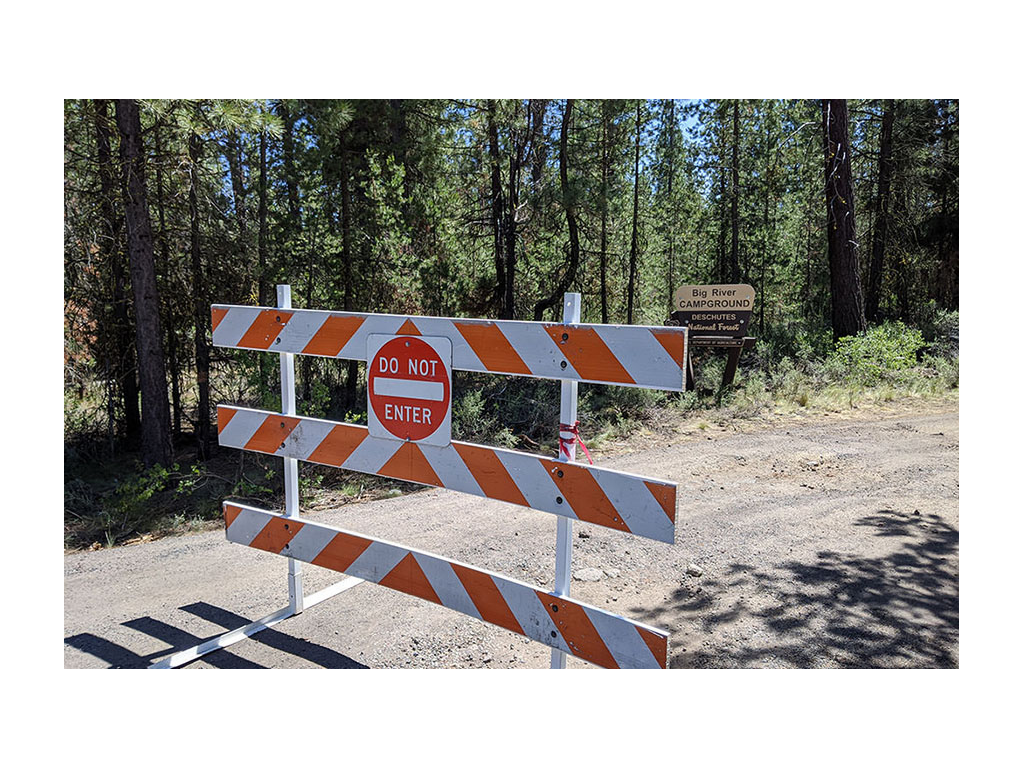
Photo by Scott & Jaime Sichler of a closed campground in Oregon.
State-By-State Guides
NPR has put together this helpful re-opening guide, organized by region as well as state, and it is updated regularly. This link-heavy list by Travel and Leisure is another good article to check, with lots of resources linked to allow you to dig further for more information, if needed.
You should also look into the state-specific travel websites for the places you plan to visit. (Most will have a pop-up inviting you to learn more about their COVID-19 plan).
Check if you will be required to quarantine if traveling from out-of-state and read about rules for social distancing and wearing masks for destinations you’ll visit. Also, make sure the places you want to go or camp are open and taking reservations. Some places, like certain national parks - which traditionally don’t involve a booking process, are beginning to require a reservation to manage the number of visitors.
Just remember to check these resources regularly as well, since this is an ever-changing situation.
RVer Insights from Around the Country
While doing your own research is very important, we know reading about first-hand experiences can often offer additional, more practical tips you may not find on a government or company website.
So, we checked in with our GoLife contributors to see how they are managing RV life right now and they shared some very helpful insights!
Moochdocking in Pennsylvania
By: Shanae & Mark McDevitt
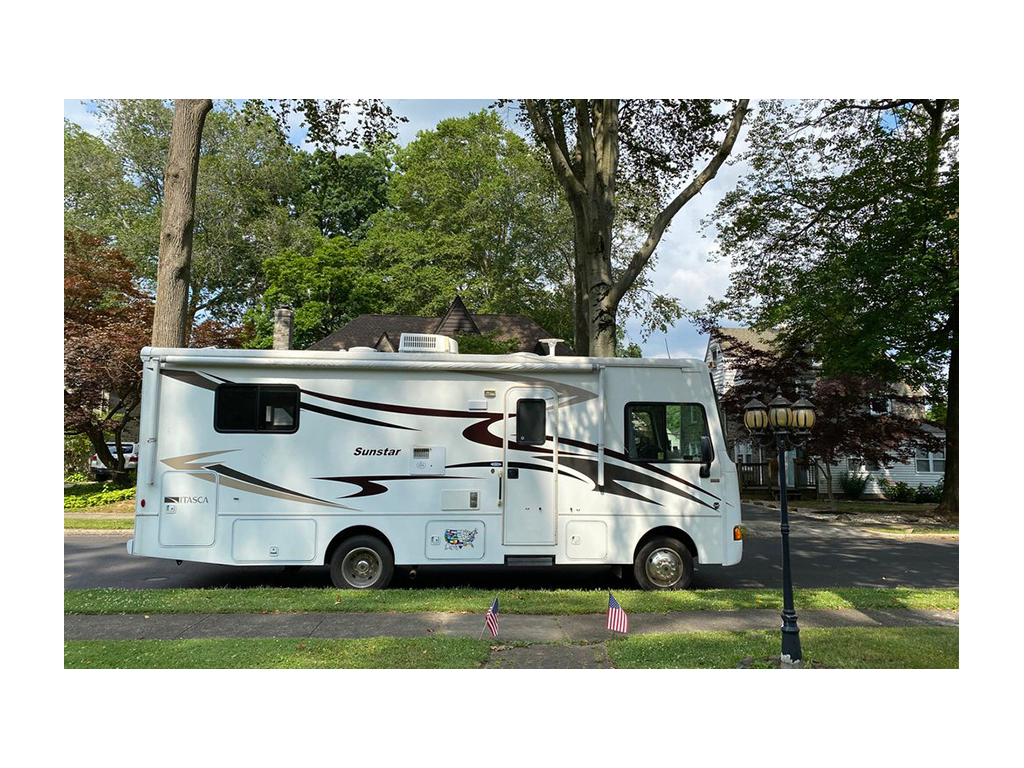
We’ve spent the past several months moockdocking with family in Pennsylvania and recently, with states beginning to re-open, we have been planning RV trips.
Moochdocking brings a certain image to mind of parking in a driveway or outside a house. For us, our driveway has been in a suburb of Philadelphia. Knowing that we would be parking within a township, we wanted to be sure the presence of our Class A motorhome in the neighborhood would be okay. In other words, no tickets and all happy neighbors!
We started our moochdocking research by asking our family if they had seen RVs parked in the neighborhood, and if they were aware of any rules for or against them. In the end though, we wanted to know the official answer, so we called the township office and asked what the zoning code is for recreational vehicles. It’s their job to know this information, so they were happy to help, and we were thrilled to know we could park there!
With states reopening we started feeling comfortable planning trips in the RV. Through our Thousand Trails membership we spent two weeks in New Jersey in June and are leaving shortly for two weeks in Maine. While it’s exciting to get back on the road, we want to follow the Covid-19 policies in each of the areas we’re traveling through for the safety of ourselves and the communities we’ll be in. Since we’re planning to stay at parks, and not boondock, our research has started with a call to the park’s main office. They’re able to make us aware of any policy changes at the campground or in the general area.
Some examples of policies we’ve been made aware of are: no-contact check in, some closed facilities, and mask policies throughout the campground. They also share factors to be aware of when considering traveling into nearby towns. When we were in New Jersey, the beaches had a “stand a dolphins distance away” policy, many of the facilities at the campground had shortened hours or were closed, and non-essential businesses in the community were not open at the time. It pays to do your research!
Research-Based RVing in Oregon
By: Scott & Jaime Sichler
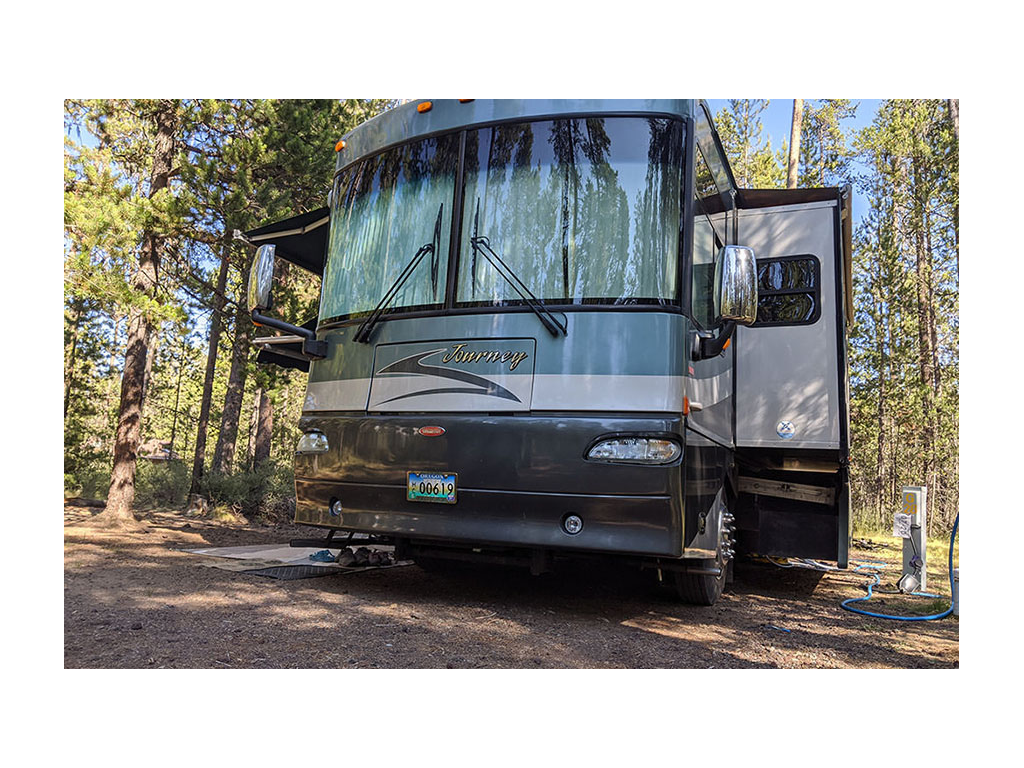
We had originally planned on being in Colorado for the Xscapers 4th of July Convergence this year. However, that was cancelled, so we decided to just head back to Oregon for the summer after returning from Baja. Although the pandemic has thrown a bit of wrench into our plans, summer is actually the perfect time to RV in Oregon. We’re just needing to do a lot more research this time!
Luckily, there are some good resources we can use to plan and inform our travels. Our first stop is the Oregon Health Authority COVID-19 website which has a daily report, including location of COVID-19 cases. Oregon is currently in a phased reopening plan that varies by county, so it's important to know all of the details that apply to the area you might want to camp in.
For campground information, we recommend starting at Campendium.com. The site is being updated daily with campground re-openings and has a search filter for closed campgrounds. However, we did find the filter showed some National Forest Service boondocking areas as closed last month when they were open, so it's always a good idea to check the land manager or campground's website for current information.
Oregon State Parks are mostly open, and you can find a map with more information here. A new-to-us resource for finding free camping sites or dispersed camping is the Outly website and free app. Outly lets you search a map and show areas and even individual spots where dispersed camping is allowed. There's also a handy land overlay on the map that identifies public land by managers including Forest Service, Bureau of Land Management, and state. Just be prepared to pack it in and pack out even in developed areas, as services including garbage might be limited.
Camping Around Colorado
By: Heath & Alyssa Padgett
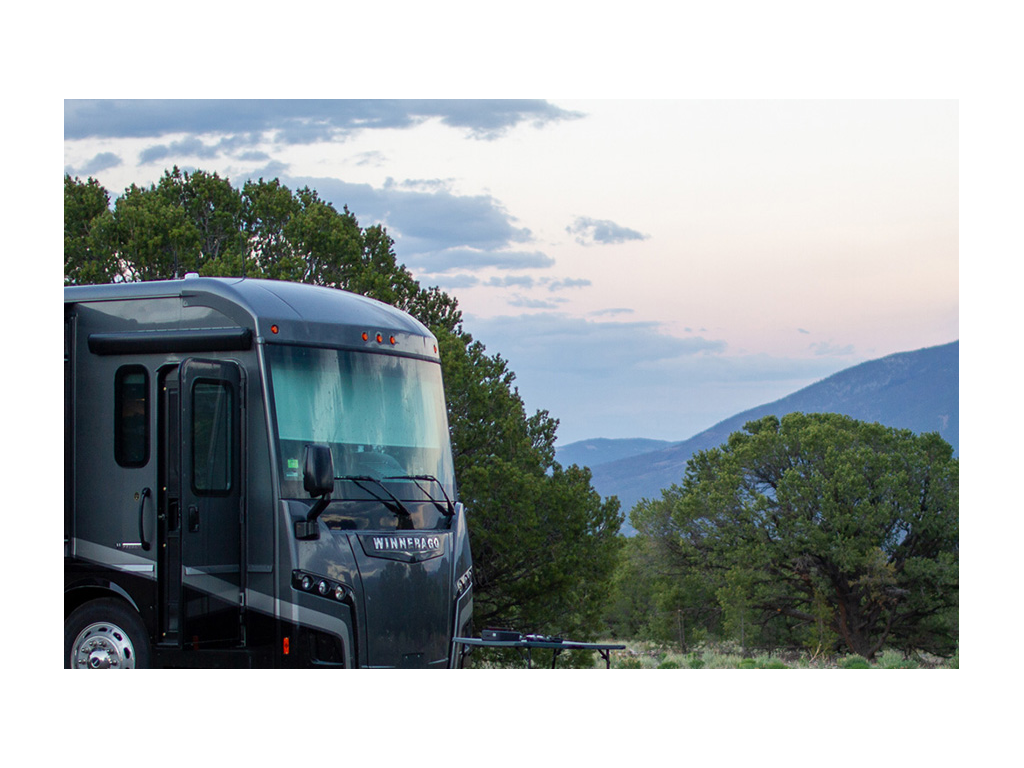
This summer, after a challenging spring, we are visiting Colorado in our Forza in search of a campground to purchase! From our experiences so far, everything in Colorado is currently open and we haven’t had any issues as out-of-state visitors (with a Texas license plate). However, there are many businesses and campgrounds operating with new or limited hours or occupancy limits.
For example, if you visit the Rocky Mountain National Parks website, you can see that many of the campgrounds are open, but only half of the sites within those campgrounds are open. (And most of them are currently booked because so many people are camping!)
You will also need to make a reservation to enter RMNP as entry is limited. There are available time slots almost every day for the rest of the summer, so while you may need some additional planning, you should still be able to enjoy the park!
Every private campground we’ve called is open and accepting reservations. We’ve used Campendium to filter through which campgrounds are currently closed. But, luckily, everything we’ve looked at has been open!
The biggest difference for us right now as campers is remembering to wear our masks to any public space (namely grocery stores and restaurants!). And to try to keep our toddler from hugging strangers - easier said than done!
For more information specifically on Colorado COVID-19 camping guidelines, see covid.colorado.gov.
Staying Put in Virginia
By: Jon & Nadia Bajuelo
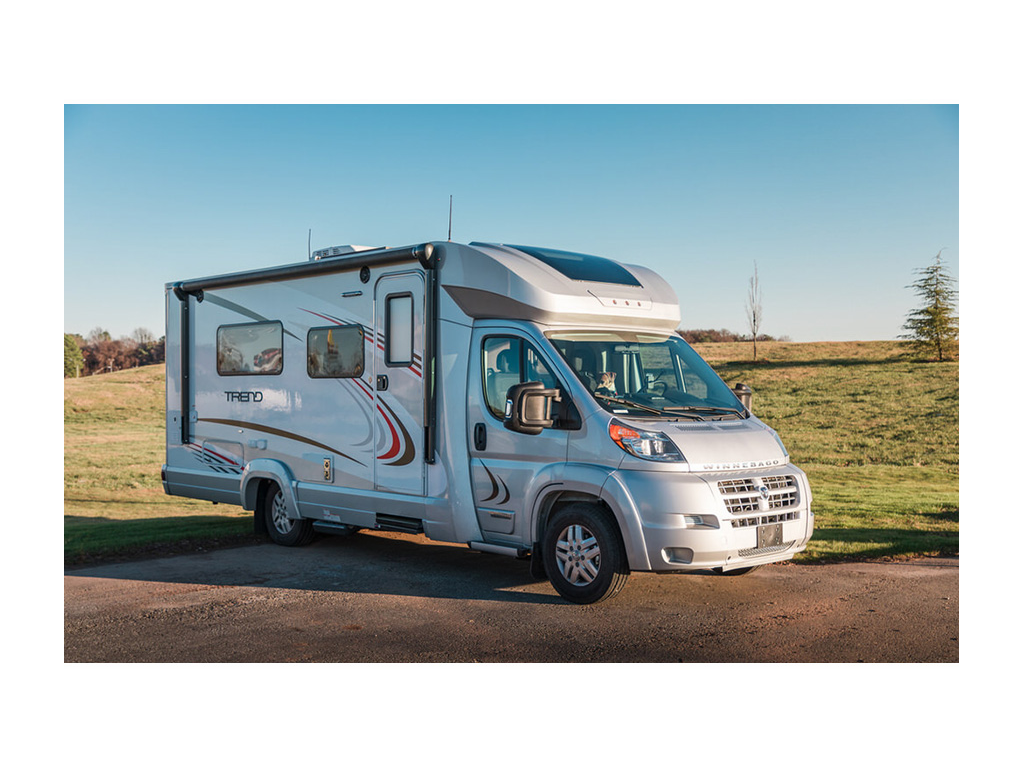
When the world began shutting down back in March, we found ourselves in Alabama. State and municipal campground closures began, and soon a tornado scare led us to push a little further into Virginia.
Months later, we’re still RVing in Virginia. Since March, Virginia state parks have reopened. As is usually the case with camping in state parks, reservations can be made through ReserveAmerica.com. One of our favorites is Pocahontas State Park!
Masks are required in all state park facilities and anytime social distancing is not possible. While the laundromat and bath houses have opened at most state park campgrounds, it’s still a good idea to call and double check - especially if this is a deal breaker for you when camping in your RV.
Private RV parks, like KOA, are also open in Virginia. At the beginning, sites were staggered and long-term stays were required, but short-term and overnight stays are available again. You’ll want to call beforehand to double check for any temporarily unavailable amenities.
No matter what option you choose, be sure to bring your mask for grabbing supplies around town. Virginia has had a state-wide mask mandate since May, but masks are now back in stock and easy to find in stores. Sanitizer, disinfectant wipes, and toilet paper are also much easier to find now. On your way out of Virginia, you’ll find truck stops and rest stops are all open too.
For more information on Virginia-specific guidelines, we recommend checking virginia.gov/coronavirus.
On the Road Out West
By: Kelly Laustsen & David Somach
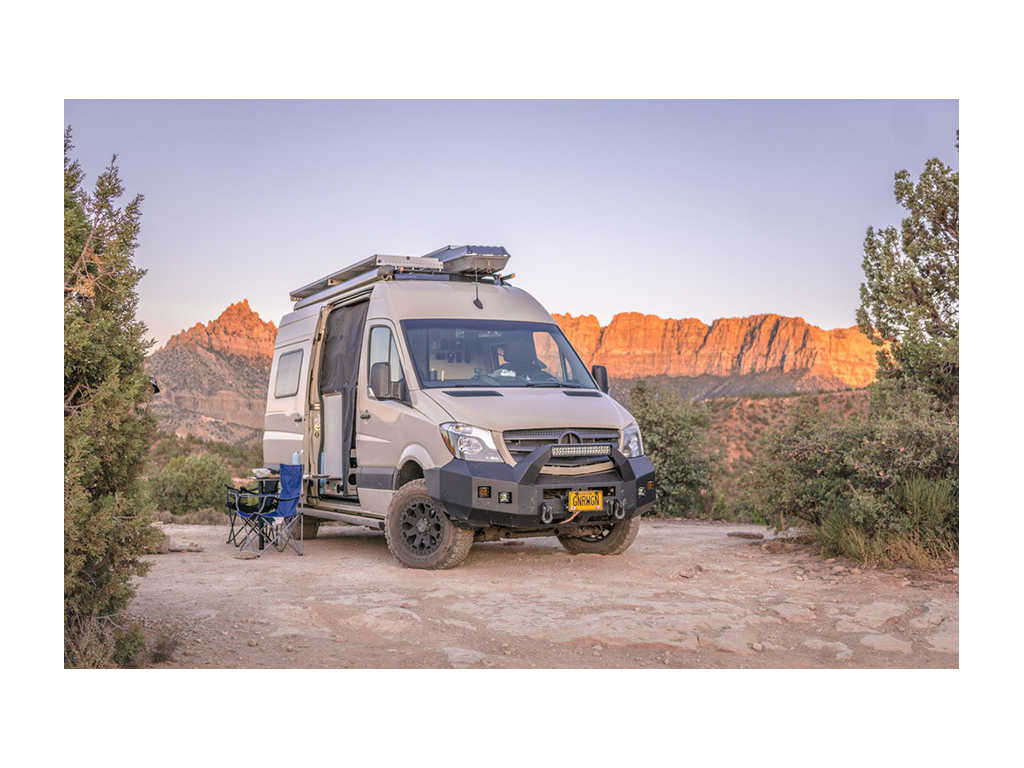
After spending a few months off the road living with family, we’ve returned to the road with a new approach to RVing. We’ve always enjoyed remote camp spots and staying off the grid, but now we are doing all we reasonably can to avoid crowded places and indoor spaces.
In order to minimize our grocery trips, we’ve started meal planning a week in advance and printing recipes on index cards to stay organized. While we used to always be on the move, not typically staying more than a night in a spot, we’ve slowed our pace of travel. We are focused on backpacking, bike riding, day hiking, and finding quiet camp spots in the woods where we can read, write, edit photos and disconnect.
We did try visiting a few national parks in Utah. The national parks website is super helpful in clearly listing what is open in each park. We’ve been surprised how much regulations vary by park, with some parks nearly entirely open (including visitor centers and campgrounds), while others are limited to select day hikes. However, the crowds at national parks were overwhelming and we found it best to limit our visits to early mornings and late afternoons.
We’ve primarily stuck to public lands for camping. We typically start with the phone app iOverlander for finding spots and always follow-up with an internet search of the national forest or local BLM office to ensure it is open for camping. So far, we haven’t come across any closed public lands, but want to make sure we are aware of any special regulations. We’ve also called several parks, BLM offices, and forest ranger offices to get more information or recommendations on the best places to camp.
While the internet is great for preliminary fact-finding, in these changing times, a phone call can often yield the most current information. In general, we’ve started to err on the side of caution, which means taking our face masks on hikes in case we pass other hikers in tight areas, avoiding restaurants, and seeking out lesser known natural areas. When the opportunity presents itself, we try to take out or buy beer from a local brewery to support the communities we pass through. Overall, we are using this time to slow down and appreciate our time in nature.
We hope this guide helps you adapt to the ‘new normal’ of RVing. Just remember, do your research before going on an RV trip, plan to book in advance, and follow precautions to keep your family safe. It may take some creativity and adjustments, but those are skills RVers excel in!
Well wishes from the GoLife team!
Comments
Comments on this post are moderated, so they will not appear instantly. All relevant questions and helpful notes are welcome! If you have a service inquiry or question related to your RV, please reach out to the customer care team directly using the phone numbers or contact form on this page .